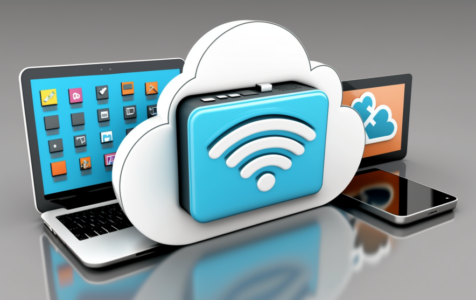Technology plays an increasingly important role in our lives, helping us stay connected with loved ones and keeping us informed about the world. However, understanding the jargon and terminology used in technology can be challenging. In this article, we will cover some common computer terms to help everyone, regardless of age, better understand and navigate the digital world.
Browser
A software program that allows you to access the internet and view web pages. Popular browsers include Google Chrome, Mozilla Firefox, and Microsoft Edge.
URL
Stands for Uniform Resource Locator, which is the address of a webpage on the internet. URLs typically begin with “http://” or “https://” and end with “.com”, “.org”, or another domain suffix.
Download
The process of transferring data from the internet to your computer.
Upload
The process of transferring data from your computer to the internet.
Cloud
Refers to online storage and computing services that allow you to store and access data over the internet. Examples include Google Drive, iCloud, and Dropbox.
Wi-Fi
Wireless internet connectivity that allows you to access the internet without the need for a physical connection.
Firewall
A security feature that helps protect your computer from unauthorized access by blocking suspicious traffic from the internet.
Malware
Short for malicious software, referring to any software designed to harm your computer or steal your data, such as viruses, spyware, and ransomware.
Spam
Unsolicited and unwanted emails, usually sent in large quantities and often promoting a product or service.
Phishing
A scam where criminals attempt to obtain sensitive information from you, such as usernames and passwords, by posing as a legitimate organization or individual through email or other means.
Encryption
The process of encoding data so that it can only be read by someone with the proper decryption key.
RAM
Short for Random Access Memory, a type of computer memory that allows the computer to access data quickly. More RAM generally means faster performance.
CPU
Short for Central Processing Unit, the “brain” of your computer that handles all of the processing and calculation tasks.
Hard drive
The main storage device for your computer, where all of your files and programs are stored.
Operating system
The software that manages all of the computer’s hardware and software resources. Examples include Microsoft Windows, macOS, and Linux.
By understanding these basic computer terms, you can better navigate the digital world and communicate more effectively with others about technology. If you still find yourself struggling with computer terminology, don’t hesitate to ask for help from a friend, family member, or tech support professional. With a little guidance, you can become a savvy and confident user of technology.
If you find that any terms you need are missing, please feel free to leave a comment below, and we’ll gladly update the content to include them.
